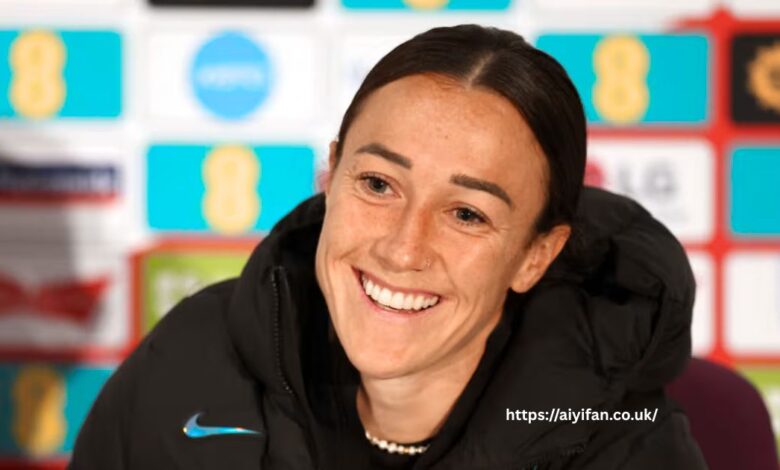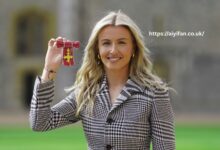Lucy Bronze Age Bio Net Worth Profile Stats Awards & Inspiring Journey

Lucy Bronze is widely celebrated as one of the most exceptional defenders in modern football a player whose consistency, athleticism, intelligence, and leadership have shaped the success of both club teams and the England national squad. Her rise from a small-town upbringing to becoming a global icon of women’s football is a story of perseverance, sacrifice, ambition, and extraordinary talent. This comprehensive profile explores Lucy Bronze age, biography, career milestones, professional statistics, net worth, achievements, playing style, and the inspiring journey that continues to motivate millions.
Lucy Bronze Age & Early Life
Lucia Roberta Tough Bronze was born on October 28, 1991, making her 33 years old as of 2025. She was raised in Alnwick, Northumberland, where her love for football began at a young age. Growing up in a region where opportunities in women’s football were limited, Bronze’s determination stood out early. She often played against boys, which helped her develop physical resilience and sharpen her competitive edge.
Despite obstacles, she pursued football passionately while balancing academics. Her early experiences included playing for local teams and showing promise as both an athlete and a leader. Bronze later attended college in the United States, where she further refined her technical and tactical abilities.
Biography & Personal Profile
- Full Name: Lucia Roberta Tough Bronze
- Age: 33 (Born October 28, 1991)
- Birthplace: Alnwick, Northumberland, England
- Nationality: British
- Height: 5 ft 8 in (1.73 m)
- Position: Right-back / Full-back
- Known For: Pace, tackling, attacking runs, leadership, and world-class defensive skills
- Current Club (2025): FC Barcelona Femení
- National Team: England Lionesses
Bronze’s personality is defined by discipline and ambition. She is known for being intensely focused during training, thoughtful in interviews, and passionate about breaking barriers in women’s football.
Lucy Bronze’s Professional Journey
- 1. Early Career Development
Bronze’s career began with her playing for Sunderland at youth level. Her early performances caught attention, leading to her involvement with Everton and later Liverpool, where her reliability as a defender grew rapidly.
Her ability to read the game, execute precise tackles, and accelerate from defense to attack made her stand out. Coaches praised her for being hardworking, intelligent, and consistent qualities that shaped her path to the top.
- 2. Rise to Fame at Manchester City
Lucy Bronze’s move to Manchester City Women was a turning point. During her time at City, she became one of the most feared right-backs in European football. Not only did she strengthen the defense, but she also contributed to the team’s offensive structure with crosses, link-up play, and long-range shooting.
At Manchester City, Bronze helped the club capture:
- FA WSL titles
- Continental Cup trophies
- FA Women’s Cup victories
Her dominant performances at City built her reputation as one of the world’s best.
- 3. European Success at Olympique Lyonnais
In 2017, Bronze signed with Olympique Lyonnais, the top European club in women’s football. This move elevated her career even further. At Lyon, she delivered some of her most remarkable performances, winning multiple:
- UEFA Women’s Champions League titles
- Division 1 Féminine championships
- Domestic cups
Here, she played alongside the world’s elite and consistently proved she belonged among them. Her attacking overlap runs, defensive blocks, and midfield versatility made her irreplaceable in Lyon’s lineup.
Her time in France solidified her legacy as a global superstar.
- 4. Barcelona Femení Era
Bronze joined FC Barcelona Femení, contributing significantly to the team’s dominance in Spain and Europe. With Barcelona, she continued to win titles, including:
- Liga F
- Copa de la Reina
- UEFA Women’s Champions League
Her experience and leadership became invaluable to a squad filled with young talent. Bronze brought stability to the defense and offered her trademark attacking width during key matches.
International Career With England
Lucy Bronze’s role with the England Lionesses has been nothing short of extraordinary.
She made her senior debut in 2013 and quickly became one of the team’s most trusted players. Bronze represented England in major tournaments including:
- 2015 FIFA Women’s World Cup
- 2019 FIFA Women’s World Cup
- UEFA Women’s Euro Championships
- 2023 FIFA Women’s World Cup
Key International Highlights
- 2015 World Cup: Scored a stunning goal against Norway, earning global recognition.
- 2019 World Cup: Selected in the FIFA Women’s World Cup All-Star Squad.
- 2022 UEFA Women’s Euro: Played a crucial role in England’s historic victory, contributing both defensively and offensively.
Bronze is admired for her consistency, mental toughness, and unmatched work ethic on the international stage.
Lucy Bronze Stats Overview
Club Career Stats (Approximate Highlights)
- Appearances: 300+
- Goals: 30+
- Assists: 40+
- Trophies: 15+ major titles
International Stats
- Caps for England: 100+
- International Goals: 10+
- Major Tournament Appearances: 4+
Bronze’s stats reflect not only her longevity but also her versatility. While defenders are not always judged on goals, her contributions in attack add immense value.
Awards & Achievements
Lucy Bronze has accumulated numerous awards over her illustrious career. Some of her most notable recognitions include:
Major Individual Awards
- The Best FIFA Women’s Player (2020) the highest individual honor in world football
- UEFA Women’s Player of the Year (2019)
- PFA Women’s Player of the Year (multiple times)
- BBC Women’s Footballer of the Year
Team Achievements
- Multiple UEFA Champions League titles
- Multiple domestic league titles (England, France, Spain)
- UEFA Women’s Euro 2022 winner with England
- Numerous domestic cups across Europe
These awards highlight her influence, consistency, and dominance across multiple leagues.

Lucy Bronze Net Worth (2025)
As of 2025, Lucy Bronze’s estimated net worth ranges between $3 million and $4 million.
Her income is derived from:
- Professional club contracts
- Bonuses and endorsements
- Sponsorships with global brands
- Public appearances
- Media features and ambassador roles
Bronze has become one of the highest-earning female defenders in world football, thanks to her elite performance and marketability.
Inspiring Journey What Makes Lucy Bronze a Global Icon
Lucy Bronze’s journey is a powerful example of how talent, discipline, and resilience can overcome structural barriers. Women’s football did not always provide equal opportunities or visibility, yet she persevered through uncertainty, limited support systems, and physical setbacks.
Key Elements of Her Inspiring Path
- 1. Overcoming Obstacles
From surgeries to competitive challenges, Bronze faced moments that could have ended her career. Instead, she pushed harder each time, developing a champion’s mindset.
- 2. Breaking Barriers
Lucy became one of the first globally recognized English female footballers, paving the way for younger players who now dream bigger because of her success.
- 3. Leadership & Influence
Her influence extends beyond football pitches. She advocates for equality, better training environments, and recognition for women athletes.
- 4. Global Role Model
Her humility, work ethic, and strategic brilliance have inspired millions worldwide.
Playing Style & Strengths
Bronze is known for:
- Explosive pace
- Outstanding defensive positioning
- Powerful long-range shooting
- Excellent crossing ability
- High stamina and physical strength
- Ball control under pressure
- Ability to transition from defense to attack
Her style blends athleticism with tactical intelligence, making her one of the most complete full-backs in modern football.
Conclusion
Lucy Bronze’s life and career embody what it means to be world-class. From her humble beginnings to becoming one of the greatest defenders in women’s football history, her journey remains inspiring, influential, and deeply impactful. With numerous awards, championship titles, and leadership roles, she has carved her name as a legend. As she continues to excel for club and country, Lucy Bronze stands as a beacon of hope for aspiring athletes proving that determination, passion, and resilience can transform dreams into a global legacy.





